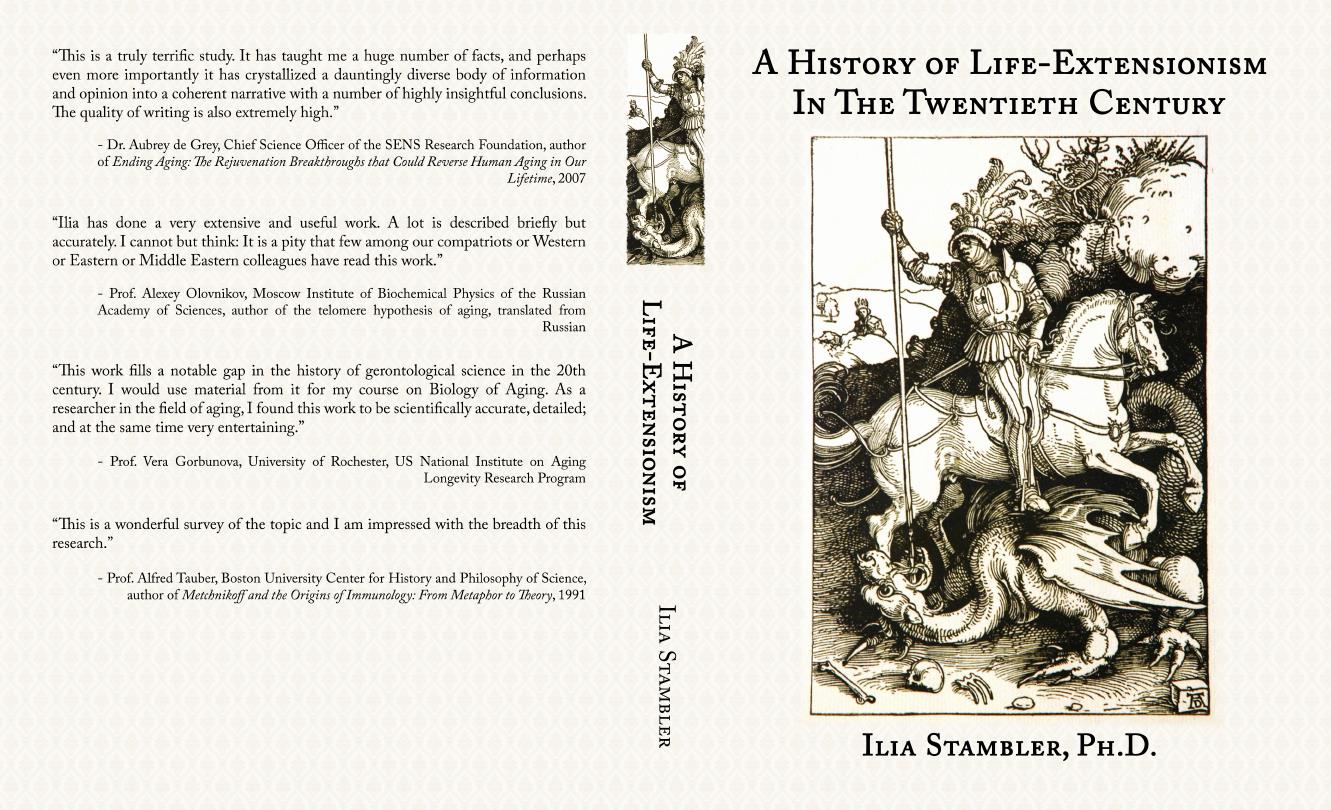A new book on the history of Life Extension research:
A History of Life-Extensionism in the Twentieth Century
By Ilia Stambler, PhD
Freely available on line at
http://www.longevityhistory.com
And as a hard copy at
http://www.amazon.com/History-Life-Extensionism-Twentieth-Century/dp/1500818577/
Proceedings from the sales of this book will be donated to international longevity research and advocacy projects, for example Regional Longevity Outreach http://www.longecity.org/forum/donate/goal-17-local-meetings/ or Israeli Longevity Alliance http://www.bioaging.org.il/ or others.
You can find more information on the subject at:
http://www.longevityhistory.com/
and
https://www.facebook.com/LongevityHistory
Thank you for your interest and feedback!
The book Summary:
This work explores the history of life-extensionism in the 20th century. The term life-extensionism is meant to describe an ideological system professing that radical life extension (far beyond the present life expectancy) is desirable on ethical grounds and is possible to achieve through conscious scientific efforts.
This work examines major lines of life-extensionist thought, in chronological order, over the course of the 20th century, while focusing on central seminal works representative of each trend and period, by such authors as Elie Metchnikoff, Bernard Shaw, Alexis Carrel, Alexander Bogomolets and others. Their works are considered in their social and intellectual context, as parts of a larger contemporary social and ideological discourse, associated with major political upheavals and social and economic patterns.
The following national contexts are considered: France (Chapter One), Germany, Austria, Romania and Switzerland (Chapter Two), Russia (Chapter Three), the US and UK (Chapter Four).
This work pursues three major aims.
The first is to attempt to identify and trace throughout the century several generic biomedical methods whose development or applications were associated with radical hopes for life-extension. Beyond mere hopefulness, this work argues, the desire to radically prolong human life often constituted a formidable, though hardly ever acknowledged, motivation for biomedical research and discovery. It will be shown that novel fields of biomedical science often had their origin in far-reaching pursuits of radical life extension. The dynamic dichotomy between reductionist and holistic methods will be emphasized.
The second goal is to investigate the ideological and socio-economic backgrounds of the proponents of radical life extension, in order to determine how ideology and economic conditions motivated the life-extensionists and how it affected the science they pursued. For that purpose, the biographies and key writings of several prominent longevity advocates are studied. Their specific ideological premises (attitudes toward religion and progress, pessimism or optimism regarding human perfectibility, and ethical imperatives) as well as their socioeconomic conditions (the ability to conduct and disseminate research in a specific social or economic milieu) are examined in an attempt to find out what conditions have encouraged or discouraged life-extensionist thought. This research argues for the inherent adjustability of life-extensionism, as a particular form of scientific enterprise, to particular prevalent state ideologies.
The third, more general, aim is to collect a broad register of life-extensionist works, and, based on that register, to establish common traits and goals definitive of life-extensionism, such as valuation of life and constancy, despite all the diversity of methods and ideologies professed. This work will contribute to the understanding of extreme expectations associated with biomedical progress that have been scarcely investigated by biomedical history.

